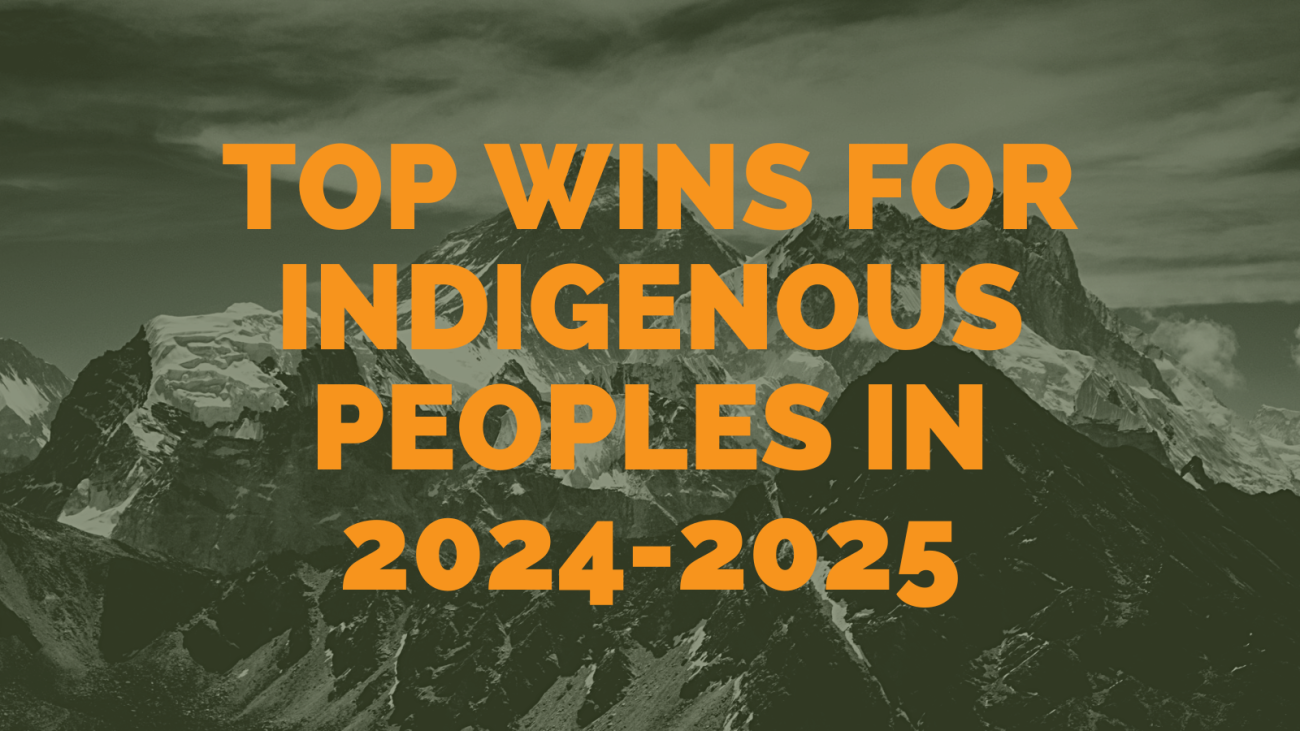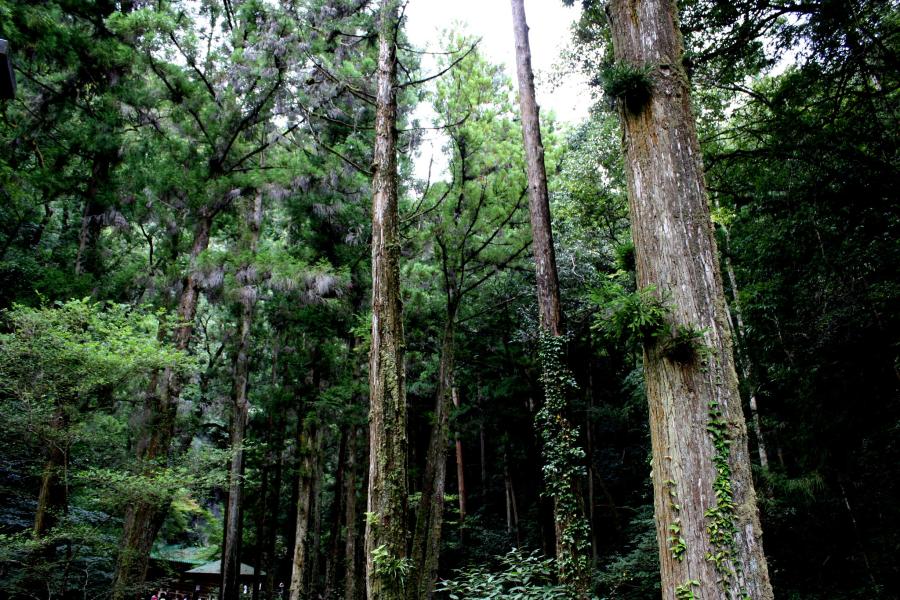
In celebration of the 18th anniversary of the adoption of UN Declaration on the Rights of Indigenous Peoples, Cultural Survival is taking a look back at the top wins for Indigenous Peoples over the past year. From historic land back cases to positive legal rulings, there has been important progress.
May 2024: UN States Adopt Treaty Protecting Traditional Knowledge
Member states of the World Intellectual Property Organization adopted a new treaty requiring patent applicants to disclose the origin of genetic resources and, when relevant, associated Indigenous knowledge. This is the first binding international legal instrument to protect Indigenous Traditional Knowledge.
July 2024: Nepal Officially Recognizes Humlo Peoples as an Indigenous Nationality
Nepal officially recognized the Humlo Peoples as an Indigenous nationality, granting them access to State protection, development programs, and recognition of their distinct identity.
September 2024: Onondaga Nation Reclaims 1,000 Acres of Ancestral Land
The Onondaga Nation regained 1,000 acres near Syracuse, New York, through a federal Superfund settlement, marking a major landback victory in Turtle Island.
October 2024: Court Upholds Rights of Marañón River and Indigenous Communities
In a significant legal victory for environmental and Indigenous rights, a Peruvian court has recognized the Marañón River as a rights-holding entity. The ruling sets a vital precedent against pollution from extractive industries.
December 2024: 13 Indigenous Lands Demarcated in Brazil
President Luiz Inácio Lula da Silva took almost two years to formalize the demarcation of 13 new Indigenous territories, a goal he was expected to complete within his first 100 days.
December 2024: Colombia Held Accountable for Violations Against U’wa Peoples
The Inter-American Court of Human Rights wholly upheld the territorial, environmental, and cultural rights of the U’wa Peoples against the threat of proposed environmentally destructive tourist projects by the Colombian government.
January 2025: 50th Anniversary of the Indian Self-Determination and Education Act
Native communities celebrated the 50th Anniversary of the Indian Self Determination and Education Act that was signed into law by President Gerald R. Ford on January 4, 1975. The Act declares that the U.S. Congress recognizes a Federal obligation to be responsive to the principle of self-determination through Indian involvement, participation, and direction of educational and service programs.
January 2025: Clemency Granted to AIM Activist Leonard Peltier
On January 20, American Indian Movement activist Leonard Peltier (Turtle Mountain Band of Chippewa) was granted executive clemency by U.S. President Biden after serving nearly 50 years in prison.
January 2025: Taranaki Maunga Gains Legal Personhood
In a landmark decision that honors Māori cosmology, the New Zealand government granted legal personhood to Taranaki Maunga, a sacred mountain revered as an ancestor by the Māori Peoples of the Taranaki region. This recognition protects the mountain as a “living and indivisible whole,” ensuring that any actions regarding the mountain’s use or conservation will be carried out with spiritual and cultural reverence. This builds on previous personhood designations in New Zealand, such as the Whanganui River, and signals a growing recognition of Indigenous environmental and cultural frameworks.
January 2025: World Bank Cancels $150M Tourism Project in Tanzania
The World Bank cancelled a $150 million project to boost tourism to Tanzania’s Ruaha National Park, following allegations of human rights violations by park authorities. The Tanzanian government’s plans to expand Ruaha would have resulted in the eviction of 44 Indigenous villages and the displacement of over 84,000 people.
February 2025: Timber Company Withdrawals from Baram Lands
In Sarawak, Malaysia, a major victory for Indigenous communities defending their customary lands took place as Samling withdrew several of its timber concessions from the Malaysian Timber Certification Scheme (MTCS). This development follows years of persistent resistance from communities across Sarawak, who have long challenged the company’s failure to obtain Free, Prior and Informed Consent (FPIC).
March 2025: High Court Backs Gumatj Clan in Native Title Case
Australia’s High Court ruled in favor of the Gumatj Clan of the Yolngu Peoples, upholding a landmark native title case initiated by the late Indigenous activist Galarrwuy Yunupingu (Gumatj). The decision affirms traditional owners’ constitutional right to compensation for mining on their land without consent.
March 2025: Ecuador Found Guilty of Violating Rights of Uncontacted Tribes
In a historic verdict, the Inter-American Court found the State of Ecuador guilty of violating the rights of uncontacted Tagaeri and Taromenane Peoples by failing to protect their territory from oil drilling, logging, and violent attacks. The ruling sets international precedent for the rights of Indigenous communities living in voluntary isolation.
March 2025: Protected Territory Established for Uncontacted Yuri-Passé Peoples
Colombia designated over 1 million hectares in the Amazonas department as a protected territory for the uncontacted Yuri-Passé Peoples, prohibiting economic development and forced human contact within the area to ensure the group's autonomy and survival.
March 2025: Karuk Tribe Gains Right to Conduct Cultural Burns
California’s Karuk Tribe became the first to gain state approval to conduct controlled burns on ancestral lands without prior permits.
March 2025: Seminole Tribe wins $832M verdict against Wells Fargo Bank
A jury awarded more than $800 million to the Seminole Tribe of Florida after finding that Wachovia Bank and its new owner Wells Fargo Bank charged more than $7 million in unauthorized fees and mishandled a trust fund set up for the Tribe’s children.
April 2025: Water Rights Agreement Signed by Yurok and Hoopa Tribes
On April 2, the Yurok and Hoopa Valley Tribes signed a landmark agreement to share 50,000 acre-feet of federal water from the Trinity Reservoir. This historic pact addresses water rights granted in the 1950s, aiming to restore the Trinity River’s health and secure vital resources for both Tribes’ future economic and environmental well being.
April 2025: British Museum Repatriates Ancestors to Australia
The Natural History Museum in London has repatriated the remains of 36 Indigenous Australian ancestors, bringing the global total of over 1,775 remains returned. Six ancestors were handed over to representatives of the Woppaburra, Warrgamay, Wuthathi, and Yadhighana communities, with the remaining 30 ancestors to be identified.
April 2025: Lumbee Tribe Secures First Major Land Holding
The Lumbee Tribe of North Carolina has acquired its first significant land holding through a 1,328-acre transfer of forested wetlands from the Open Space Institute.
April 2025: Ainu Remains Returned by University of Edinburgh
The Ainu Association of Hokkaido welcomed the return of three skulls of their ancestors, which had been held at the University of Edinburgh’s Anatomical Museum for more than 100 years.
May 2025: UN rights body rules Guatemala failed displaced Mayan Peoples
The UN Human Rights Committee has found that Guatemala did not follow through on promises to resettle and compensate Mayan Peoples who remain forcibly displaced.
May 2025: Ontario Legislature Approves Indigenous Language Use
All members of the Ontario legislature are now allowed to address the floor in any Indigenous language spoken in Canada.
May 2025: Indigenous Communities Halt Solar Mega-Project in Assam
The Asian Development Bank cancelled a $434 million solar park in Assam after protests from Karbi, Naga, and Adivasi communities. The project threatened 20,000 families and violated constitutional land protections and FPIC protocols.
June 2025: Rio Tinto Signs Co-Management Agreement with Traditional Owners
Rio Tinto has signed a landmark co-management deal with the PKKP Aboriginal Corporation returning Traditional Owners legal authority over mining decisions on their lands, setting new industry standards for cultural heritage protection and corporate accountability.
June 2025: Indigenous Scholars Appointed UNESCO Co-Chairs
UNESCO named Amy Parent (Nisga’a) from Canada and Sonajharia Minz (Oraon) from India as co-chairs of a new Indigenous knowledge research chair. Their focus includes revitalizing endangered Indigenous languages, promoting data sovereignty, and linking Traditional Ecological Knowledge to climate resilience through rematriation and culturally grounded research governance.
June 2025: Yurok Tribe Reclaims 17,000 Acres
In California’s largest land back deal, the Yurok Tribe has regained 17,000 acres along the Klamath River, completing a 47,000-acre restoration effort. The reclaimed land, including sacred Blue Creek, will be managed as a salmon sanctuary and forest.
June 2025: Totonac Communities Secure Court Win in Fight Against Fracking
In a landmark ruling, Mexico’s Segundo Tribunal Colegiado en Materia Administrativa (Second Collegiate Administrative Court) ordered a critical expert evaluation to assess the risks of fracking operations in the Totonac Peoples’ territory, within the Papantla region of Veracruz.
June 2025: Nepal Supreme Court Mandates Enforcement of Indigenous Treaties
In a historic decision setting a new legal precedent for Indigenous sovereignty in South Asia, Nepal’s Supreme Court has ordered the government to align national laws with ILO Convention 169 and the UN Declaration on the Rights of Indigenous Peoples.
June 2025: Finland Passes Historic Sami Parliament Reform
Finland has approved a major reform to the Sami Parliament Act, strengthening Indigenous self-governance by allowing the Sami to define voter eligibility based on linguistic heritage and empowering Europe’s only Indigenous people to safeguard their languages and culture through democratic representation.
July 2025: Court Protects Amazonian Indigenous Peoples from Mercury Pollution
Colombia’s Constitutional Court ordered the suspension of new gold mining licenses in the Yuruparí region after ruling that mercury pollution threatens the health, food systems, and cultural survival of 30 Indigenous communities. The court mandated urgent government action, Indigenous participation, and international cooperation to restore contaminated rivers and uphold ancestral rights.
July 2025: Millewa-Mallee First Nations Peoples in Victoria Win Native Title
After two decades of struggles, a federal court awarded the historic native title determination to the Indigenous Peoples in the Millewa-Mallee from northwest Victoria, Australia, for the first time, granting exclusive native title rights in the state. Three traditional owner groups which make up the First Nations peoples of the Millewa-Mallee – Latji Latji, Ngintait and Nyeri Nyeri – have the right to control access to their country under traditional law and customs.
August 2025: Cowichan Aboriginal Title Recognized by British Columbia Supreme Court
The British Columbia Supreme Court issued its long-anticipated decision in Cowichan Tribes v. Canada. The Court recognized the Cowichan Nation’s Aboriginal title to part of the Fraser River’s south arm and affirmed its constitutional right to fish in those waters for food. The trial spanned 513 days over five years and is deemed the longest in Canada’s history. The 863-page judgment will have wide-reaching legal implications.
August 2025: Landmark Law Protects Indigenous Lifeways in Thailand
Thailand passed the Bill on the Protection and Promotion of the Way of Life of Ethnic Groups to safeguard the rights, traditions, and cultural practices of Indigenous and ethnic communities.
August 2025: Amazon Cooperation Treaty Organization Creates Amazon Indigenous Peoples’ Mechanism
One of the Amazon Basin’s intergovernmental bodies, the Amazon Cooperation Treaty Organization (ACTO), announced the creation of a formal role for Indigenous Peoples. ACTO’s members — Bolivia, Brazil, Colombia, Ecuador, Guyana, Peru, Suriname, and Venezuela — coordinate a regional agenda for protecting the Amazon’s natural resources. The Amazon Indigenous Peoples’ Mechanism (MAPI) will include two Indigenous delegates from each member country.



